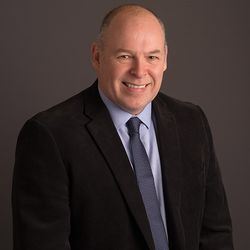

Promoting Scottish handball on the European stage
 Promoting Scottish handball on the European stage
Promoting Scottish handball on the European stage
The 14th Ordinary EHF Congress in Glasgow starts on Tuesday, 19 June 2018 – and the event is set to be a highlight for its organiser, the Scottish Handball Association (SHA).
On the Congress' eve, eurohandball.com talked to the head of organisation, Stevie Neilson, the SHA's COO, about his expectations and the impact the event can have on handball in Scotland.
On Tuesday, the EHF Congress will start in Glasgow. Are you excited to be the event's host?
Stevie Neilson: The past weeks and days have been full of really intense preparations for the EHF Congress. We are really happy that the Scottish Handball Association was awarded the event in 2016. Now we have the great opportunity to host all European handball federations. For a small federation like we are, it is easier to organise a Congress than to organise an EHF competition. We want to show how strong handball is in Scotland.
What kind of impact for handball in Scotland do you hope for?
Stevie Neilson: We don't expect that much public and general interest, but for us the contact to the government and all other authorities is important. The former sports minister will hold a speech on the opening day. He knows handball; he has been to a youth match between Scotland and England. We won this match, hence his handball memories are good ones – as you know, any competition between England and Scotland is highly important and fierce.
How has handball in Scotland developed, in particular after London hosted the 2012 Olympic Games?
Stevie Neilson: London 2012 left a legacy, but in in our case in a very special way: many schools attended handball matches at London 2012. The teachers and students got to know our sport – and they liked it. It is our main aim to combine handball and education. We go to primary schools to introduce handball. At that age, the boys and girls have not chosen their sports, for example football or rugby, yet. This is the chance for handball. When the kids know handball from school, then we have the chance to start with club handball in those cities. Handball has grown in particular in the central belt between Glasgow and Edinburgh, but some clubs were founded also in Aberdeen and Dundee.
Does this mean Scottish players join the Great Britain national teams in considerable numbers?
Stevie Neilson: Indeed. For example, Great Britain will be part of the Men's 20 EHF Championship in FYR Macedonia this summer, and four of 16 players are likely to come from Scotland. This is a huge success for us. It is always our biggest aim in terms of national teams to have as many Scottish players involved as possible.
You are the representative for the smaller nations on the EHF Nations Board. Do all of them have the same ideas and challenges as Scotland have?
Stevie Neilson: I'm a permanent representative at EHF Congresses since 2002, and I have good relationships to the developing and smaller federations. All have the same needs, such as how to finance European-wide competitions and qualification or the quality of the TV signal you have to deliver. I'm proud that I could contribute the ideas of the smaller nations into the qualification process for the upcoming EHF EUROs with 24 teams. But I hope that in future all nations with national teams could be part of the process. Tthis is what I work for.
Once the EHF Congress is over on Wednesday, in which case would you call it a success for the Scottish handball Association?
Stevie Neilson: If every participant returns home with a positive feeling from our country and our hospitality. If everybody enjoyed his or her time at Glasgow and if we, as a small federation, have shown our ability to host a major event like this. And finally, if we had the chance to promote Scottish handball on the European stage.





